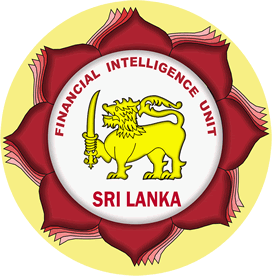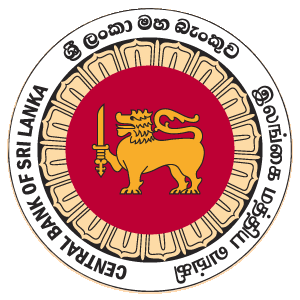
- What is Money Laundering?
- What are the steps of Money Laundering?
- What is terrorist financing?
- What is Financial Intelligence Unit?
- What are the laws relating to combating money laundering/terrorist financing in Sri Lanka?
- What are the predicate offences/unlawful activities of money laundering?
- What are the predicate offences of money laundering in Sri Lanka?
- What are the penalties for committing money laundering offence?
- What is Financial Action Task Force (FATF)?
- What is Asia Pacific Group on Money Laundering (APG)?
- What is a Suspicious Transaction Report (STR)?
- Who can submit Suspicious Transaction Report (STR)?
- What is meant by finance business and designated non-finance business under FTRA?
- What are the responsibilities of an Institution as per the FTRA?
- What is Money Laundering?
- What are the stages of Money Laundering?
- What is terrorist financing?
- What is Financial Intelligence Unit?
- suspicious transaction reports; and
- other information,
- What are the laws relating to combating money laundering/terrorist financing in Sri Lanka?
- Conventions on the Suppression of Terrorist Financing Act No 25 of 2005 (CSTFA).
- Conventions on the Suppression of Terrorist Financing (Amendment) Act No 41 of 2011.
- Conventions on the Suppression of Terrorist Financing (Amendment) Act No 03 of 2013 - Prevention of Money Laundering Act No 05 of 2006 (PMLA).
- Prevention of Money Laundering (Amendment) Act No 40 of 2011 - Financial Transactions Reporting Act No. 06 of 2006 (FTRA).
- What are the predicate offences/unlawful activities of money laundering?
- What are the predicate offences of money laundering in Sri Lanka?
- The Poisons, Opium and Dangerous Drugs Ordinance (Chapter 218);
- Any law or regulation for the time being in force relating to the prevention and suppression of terrorism;
- The Bribery Act (Chapter 26);
- The Firearms Ordinance (Chapter 182), the Explosives Ordinance (Chapter 183) or the Offensive Weapons Act, No. 18 of 1966.
- The Exchange Control Act (Chapter 423), and any Rules, Orders or Regulations made thereunder;
- An offence under Section 83C of the Banking Act, No. 30 of 1988;
- Any law for the time being in force relating to transnational organized crime;
- Any law for the time being in force relating to cyber crime;
- Any law for the time being in force relating to offences against children;
- Any written law for the time being in force relating to offences connected with the trafficking or smuggling of persons;
- The Customs Ordinance (Chapter 235) and any Regulation, Rule or Order made thereunder;
- The Excise Ordinance (Chapter) 52 and any Regulation, Rule or Order made thereunder;
- The Payment Device Frauds Act No 30 of 2006 and any Regulation, Rule or Order made thereunder;
- The National Environmental Act No 47 of 1980 and any Regulation, Rule or Order made thereunder
- An offence under any other written law for the time being in force which is punishable by death or with imprisonment for a term five years or more; provided however that, notwithstanding anything to the contrary in the preceding provision, any offence under section 386, 388, 399, and 401of the Penal Code (Chapter 19) shall be deemed to be an unlawful activity for the purpose of this Act; and
- An act committed within any jurisdiction outside Sri Lanka, which would either constitute an offence in that jurisdiction or which would if committed in Sri Lanka amount to an unlawful activity within the meaning of this Act.
- What are the penalties for committing money laundering offence?
- What is Financial Action Task Force (FATF)?
- What is Asia Pacific Group on Money Laundering (APG)?
- What is a Suspicious Transaction Report (STR)?
- Who can submit Suspicious Transaction Report (STR)?
- What is meant by finance business and designated non-finance business under FTRA?
- banking business as defined in the Banking Act, No. 30 of 1988 ;
- finance business as defined in the Finance Companies Act, No. 78 of 1988 (irrespective of whether the person is licensed or registered under the Act) ;
- lending, including consumer credit, mortgage credit, factoring (with or without recourse) and financing of commercial transactions ;
- financial leasing other than transactions relating to consumer products ;
- the transfer of money or value ;
- money and currency changing services ;
- issuing and managing means of payment (i.e. credit cards, travellers’ cheques, money orders and bankers’ drafts and electronic money) ;
- issuing financial guarantees and commitments, including but not limited to consumer credit, factoring with or without recourse and financing of commercial transactions including forfeiting ;
- trading for its own account or for the account of customers in money market instruments (i.e. cheques, bills, certificates of deposit and derivatives), foreign exchange, exchange, interest rate and index instruments, commodity futures trading and transferable securities ;
- participating in securities issues and the provision of financial services related to such issues ; and
- such other business as may be prescribed from time to time by the Minister taking into consideration the interests of the national economy.
- individual and collective portfolio management ;
- investing, administering or managing funds or money on behalf of other persons
- safekeeping and administration of cash or liquid securities of behalf of other persons ;
- safe custody services ;
- underwriting and placement of insurance, as well as insurance intermediation by agents and brokers ;
- trustee administration or investment management or a superannuation scheme ;
- casinos, gambling houses or conducting of a lottery, including a person who carries on such a business through the internet when their customers engage in financial transactions equal to or above the prescribed threshold ;
- real estate agents, when they are involved in transactions for their clients in relation to the buying and selling of real estate ;
- dealers in precious metals and dealers in precious and semi-precious stones, including but not limited to, metals and stones covered by the Gem and Jewellery Act, No. 50 of 1993 when they engage in cash transactions with a customer, equal to or above the prescribed threshold ;
- lawyers, notaries, other independent legal professionals and accountants when they prepare for or carry out transactions for their clients in relation to any of the following activities :—
- buying and selling of real estate ;
- managing of client money, securities or other assets ;
- management of bank, savings or securities accounts ;
- organization of contributions for the creation, operation or management of companies ; and
- creation, operation or management of legal person or arrangements and the buying and selling of business entities ;
- a trust or company service provider not otherwise convered by this definition, which as a business provides and one or more of the following services to third parties :—
- formation or management of legal persons ;
- acting as or arranging for another person to act as, a director or secretary of a company, a partner or a partnership or a similar position in relation to other legal persons ;
- providing a registered office, business address or accommodation, correspondence or administrative address for a company, a partnership or for any other legal person or arrangement ;
- acting as or arranging for another person to act as, a trustee of an express trust ;
- acting as or arranging for another person to act as, a nominee shareholder for another person ;
- offshore units in accordance with the definitions provided for the same in other written laws ; and
- such other business as may be prescribed from time to time by the Minister taking into consideration the interests of the national economy.
- What are the responsibilities of an Institution as per the FTRA?
- appoint a Compliance Officer who shall be responsible for ensuring the Institution’s compliance with the requirements FTRA
- establish and maintain procedures and systems to—
- implement the customer identification requirements under section 2 of FTRA
- implement procedures for the record keeping and retention requirements under section 4 of FTRA
- implement the process of monitoring required under section 5 FTRA
- implement the reporting requirements under sections 6, 7, 8 and section 22 of FTRA in relation to auditors ;
- make its officers and employees aware of the laws relating to money laundering and financing of terrorism ; and
- screen all persons before hiring them as employees
- establish an audit function to test its procedures and systems for the compliance with the provisions of this Act ;
- train its officers, employees and agents to recognize suspicious transaction.
Money Laundering is the process by which proceeds from a criminal activity are disguised to conceal their illicit origin. Money launderers send their illicit funds through legal channels in order to conceal their criminal origin and convert them into legitimate assets.
1st Stage - Placement
The initial stage of the process involves placement of illicitly earned funds into financial system, usually through a financial institution. This can be accomplished by placing cash deposits into bank accounts or cash purchase of shares or insurance contracts. In the case of bank deposits large amount of cash are broken into smaller, less conspicuous amounts and deposited over time in different branches of a single financial institution or in multiple financial institutions.
2nd Stage- Layering
The second money laundering stage, layering occurs after the ill-gotten funds have entered into the financial system, at which point the funds, securities or insurance contracts are converted or moved to other institutions further separating them from their criminal sources. Such funds could then be used to purchase other securities, insurance contracts or other easily transferable investment instruments and then sold through another institution.
3rd Stage - Integration
The third stage involves the integration of funds into the legitimate sector. This is accomplished through the purchase of assets such as real estate, securities, other financial assets or luxury goods such as cars, gems & jewelries etc.
Terrorist financing is the financial support in any form of terrorism or of those who encourage, plan or engage in terrorism. Funds used to support terrorism may originate from legitimate sources, criminal activities or both. In terrorist financing not only the source but also the ultimate uses of the funds are also needs to be concealed.
Financial Intelligence Unit (FIU) is the national agency for the receipt and analysis of:
relevant to money laundering, associated predicate offences and terrorist financing, and for the dissemination of the results of that analysis.
Sri Lanka’s Anti Money Laundering (AML) and Countering the Financing of Terrorism (CFT) regime comprises with three pieces of legislations.
The criminal activity which generated the proceeds is called a predicate offence or underlying crime in money laundering and when such funds are laundered offence of money laundering will occur. In early stages, the underlying crime was limited to drug trafficking offences. However, the international community has developed the view that underlying offence of money laundering should go beyond the drug trafficking offences and therefore expanded to cover 20 designated categories of offences that must be included as underlying offence/predicate offence for money laundering.
As per the Prevention of Money Laundering Act No 5 of 2006 an “Unlawful activity” means any act which constitutes an offence under;
Any person who is guilty of the offence of money laundering; shall on conviction after trial before the High Court be liable to a fine which shall be not less than the value of the property in respect of which the offence is committed and not more than three time the value of such property, or to rigorous imprisonment for a period of not less than five years and not exceed twenty years or both such fine and imprisonment. Further, the property derived from or involved in money laundering is also liable to forfeiture under the Act. Further assets of any person found guilty of the offence of money laundering shall be liable to forfeiture in terms of the Act.
The Financial Action Task Force (FATF) is an inter-governmental body established by the G-7 Countries in Paris in 1989. The main purpose is the development and promotion of policies, both at national and international levels, to combat money laundering, terrorist financing and financing of proliferation of weapons of mass destruction. Accordingly, FATF reviews and publishes recommendations at regular intervals providing comprehensive plan of action needed to fight against money laundering, terrorist financing and financing of proliferation of weapons of mass destruction. FATF introduced its revised 40 Recommendations on combatting money laundering, terrorist financing and financing of proliferation of weapons of mass destruction in February 2012
APG is a FATF style regional monitoring body established in 1997. The main purpose is to monitor compliance of the Asia Pacific Region with the FATF Recommendations. Sri Lanka is a founding member of the APG.
A Suspicious Transaction Report (STR) is a report filed when there are reasonable grounds to suspect that the transaction is related to a money laundering, terrorist financing or any other criminal offence. A suspicious transaction can include both completed and attempted transactions.
As per the Section 7 of the FTRA any Institution who has reasonable suspicion of any transaction relating to ML/TF is required to report STRs. Institution means, any person or body of persons engaged in or carrying out any finance business or designated non-finance business.
Further as per Section 5 (1) of the PMLA, any person who knows or has reason to believe from information or other matter obtained by him in the course of any trade, profession, business or employment carried on by such person, that any property has been derived or realized from any unlawful activity, is required to file a STR.
“finance business” includes any one of the following businesses or activities :—
“designated non-finance business” includes—

